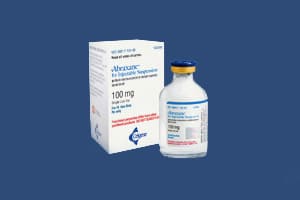
Celgene’s plans for its oncology medicine Abraxane continue apace following the European Commission’s decision to approve the drug as a first-line treatment in pancreatic cancer.
The decision follows a recommendation made last year by the European Medicines Agency (EMA) and means Celgene will be able to market Abraxane (paclitaxel) in the EU in combination with Lilly’s Gemzar (gemcitabine) for adult patients with metastatic form of the disease.
It adds to Abraxane’s current EU licence as a treatment for certain patients with metastatic breast cancer, an indication it received in 2008.
Celgene has been planning to expand the drug’s uses for some time now, and data from the phase III MPACT study demonstrated was used to back its approval in pancreatic cancer.
Published in the New England Journal of Medicine, the study demonstrated that a combination of Abraxane and Gemzar was able to improve median overall survival by about two months compared to Gemzar alone.
This data also helped the drug win approval in September last year for the treatment of metastatic pancreatic cancer in the US, where it is also approved in the treatment of breast cancer and non-small cell lung cancer (NSCLC).
These multiple indications have helped Abraxane become one of Celgene’s leading products, reaching total sales of $170m in the third quarter of 2013, coming primarily in the US.
Its latest approval should help boost the drug’s performance in the EU, while Celgene has further trials ongoing investigating the drug as an adjuvant treatment in pancreatic cancer, a maintenance treatment in squamous non-small cell lung cancer and as a treatment in metastatic melanoma.
With Abraxane’s approval in metastatic pancreatic cancer, Celgene has succeeded where other companies – including Roche with Avastin, Sanofi with aflibercept and Pfizer with axitinib – have failed.
But competition could potentially come from Merck KGaA’s investigational drug TH-302, which is currently in phase III trials for pancreatic cancer and is one of Merck’s key drug hopes.




